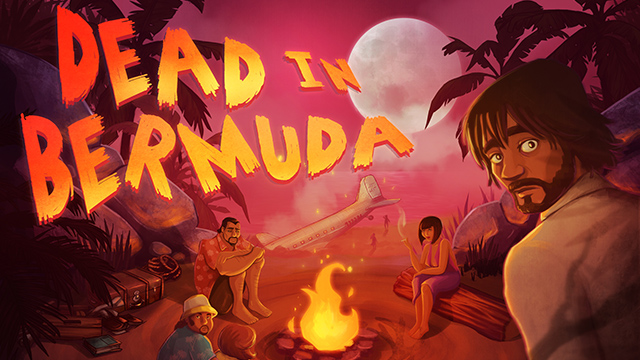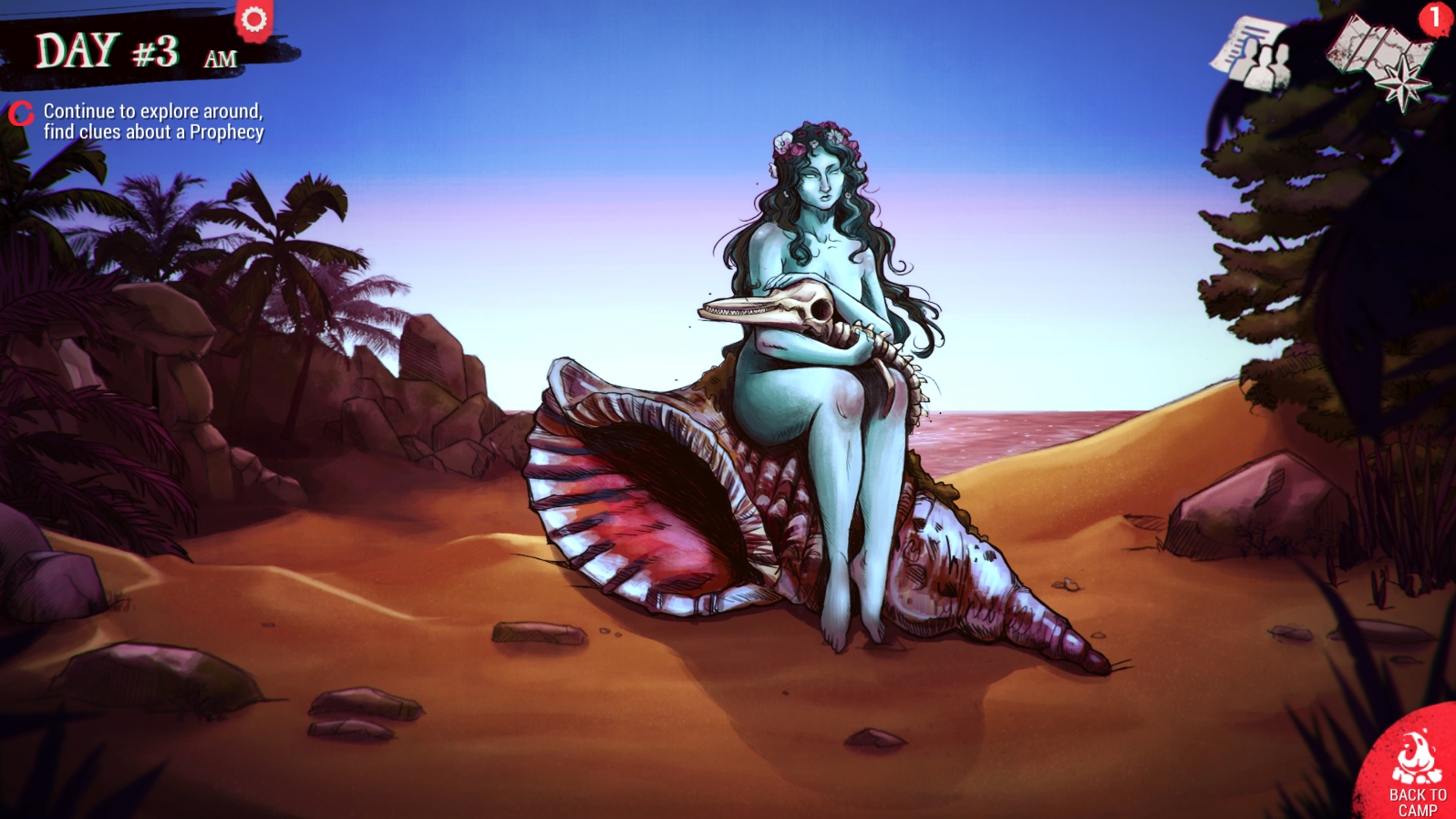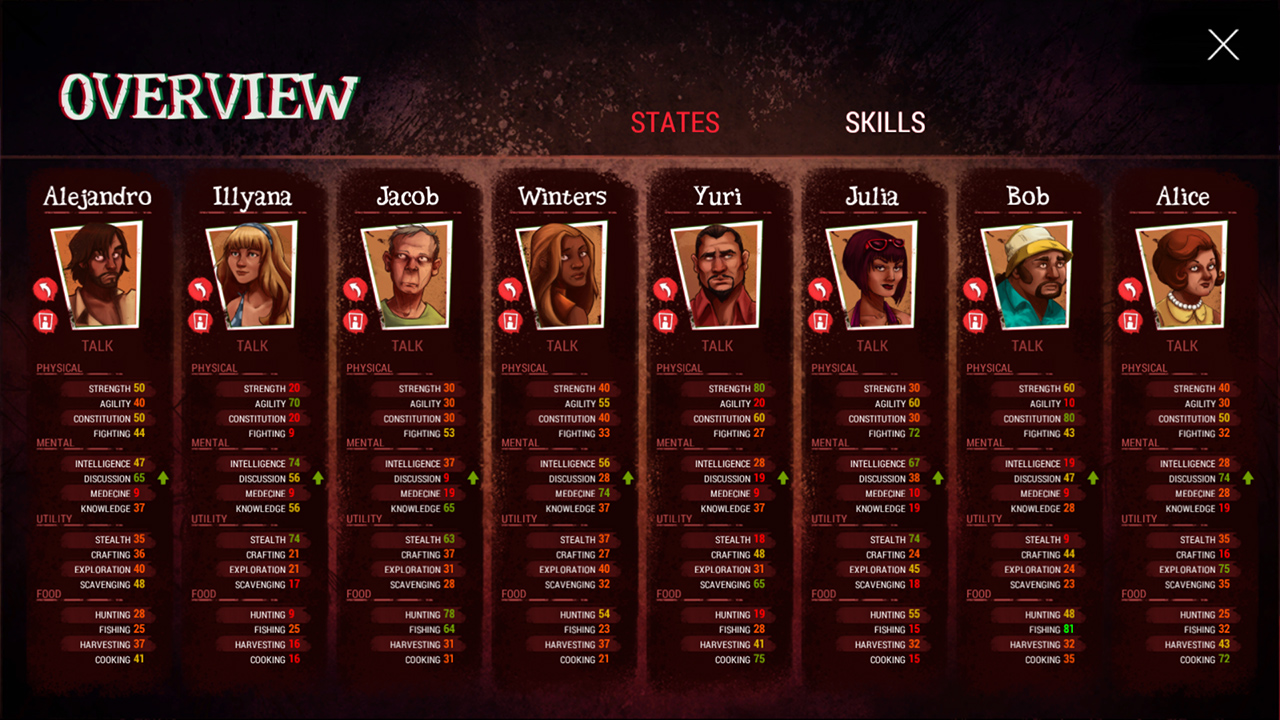Trending
Opinion: How will Project 2025 impact game developers?
The Heritage Foundation's manifesto for the possible next administration could do great harm to many, including large portions of the game development community.
First entry in a series of Post-Mortems about the production of Dead In Bermuda, a survival management game with RPG and adventure elements. The first part is a brief history of the production of the game.

I’ll start this series of post mortems by a quick general overview, but I’ll go deeper in game design and financial datas in the next ones. It’s a first for me, so keep up with my noobiness and bad English (you’re lucky, you don’t have to hear my frenchie accent)!
Dead In Bermuda is a survival management game with RPG and adventure elements released on Steam in August 2015, made by CCCP and published by Plug In Digital Label.

I’m Matthieu Richez and I founded CCCP in 2005 with a few people. We are a game development studio, but we are mostly know in France for making educational games, mainly in the healthcare domain. For example, we made a game to give therapeutical informations for hospitalized children, games on cancer, things like that.
We always made some games too, mostly little flash and casual games, but we never dared to make games for core players, games that we would really enjoy as players. It strange how even if I created my own game development company, I put such invisible barriers between what I want as a player and what "we should do as a company". I think these should collide, if not, what's the point?
So 2 years ago, I took the big decision to at least try once to make such a game, on a small scale so with very limited risks, but it was a big step forward nonetheless for us.
I wrote the basics of the concept that would turn up to be Dead In Bermuda. To my big surprise, people liked what I wrote, and we found a way to finance the development of the game, rather quickly. Wow. (More on that on the next Post Mortem!)
And now we are, after just one year of development with a team of me + 2 colleagues, we released the game, on Steam, within budget, within time, the game has been appreciated by players (88% of positive user reviews as we speak), commercially it’s not a disaster, it’s even successful enough that our publisher wants to make a sequel. Wow. (More on that on the next Post Mortem!)
So what happened in between? That’s the interesting part.
Game design:
We started with a few game design ideas I wrote. It was a mess, but what I really wanted was to let the player manage a group of people, their specific skills, their assignment to specific tasks and hopefully their relations evolving. Often, these elements don’t make the core gameplay of RPG or tactical games, but are more like big or little cool bonus gameplay features. For example, in a game like the excellent State Of Decay, all the character related stuff and activity assignments are very cool to me, but only make for a small percent of my gameplay time… In the end, it’s an action game where you splash zombies’ heads, and it’s cool, but I was really more interested in leveling-up my band of misfits, and seeing if characters would argue, become friends, etc…
So yeah… Back on track, at first I thought that I could make this “little” turn-based game I had in mind almost alone… With a background as a Flash programmer, I started Unity, made a few tuts online and went on making a prototype while my artist made cool sprites… Ah. Ah. Ah. After a few weeks struggling with my prototype, and realizing that it brought many more questions in terms of game design than answers… The final member of the team came to our rescue, he dumped the garbage I coded and started fresh, and so I could focus on making a real game design document.
Because yes… Making this game was going to be… HARD.
In terms of systems, we had very, very too many of them… Think about it, we had:
Character skill system, with level up and such
Character health state system, how they interact, etc…
Character special trait system
Character relationship system
Dialog system with conditioning and effects
Special events system
Exploration system
Random map generation system
Inventory, usable items with effects
Activities assignments
Survival systems, like food deteriorating, water supplies, firewood, ….
Research and crafting
Interactable objects
…
And at first, I also wanted a turn based combat system, that could be a game on its own… Ah. Ah. Ah. This one is the only system we couldn’t afford to make into the game, even if we designed and prototyped almost 3 different systems, but I’m glad we dropped it: it would have been just half-baked and disappointing, and we would have been tagged as a “bad turn based strategy game” instead of a “rather good management game”.
Having so many systems in a rather “small” game like this is also risky on many other levels: We feared we couldn’t balance everything very well, and it turned out to be true, we worked post-release of the game to make a free 1.1 patch for players to make the game more challenging from start to finish. Another thing that was hard, was how to market the game? People, press and stores tend not to like multi-genre, and we had at least 3 of them – management, adventure and RPG – make it 4 if we add “survival” in the equation (which I don’t know if it is really a game “genre”, but in terms of marketing it made sense to label it that way).
So it was very risky, very hard to handle it in terms of development, and I don’t recommend anyone to do it :) But well, it turned out not too bad, people seemed to like the little mix we made. During development, there are times when you don’t know anymore if your game makes any sense, you think it doesn’t look at all like what you designed at first, you think that everyone will hate it, you hate it… But in the end, I’m really glad of what we produced, I put a lot of myself in it and it looks a lot like a game I would enjoy as a player.
I talked about game design, and now a bit more about the other areas of development:
Arts:
One of the first discussion we had about the artistic direction was to decide if we wanted a very dark, gothic, with blood and gory stuff artistic direction that could match the survival setting, but right from the start we thought it was not a good idea. Our artist was not really into this kind of stuff, and we found that it was more interesting to have an atmosphere really different from zombies survival games in ours. I find the result really cool, really smooth and relaxing with nice colors, even if there are strange/weird things that you will find if you explore the jungle.

Weird.
Another point that was interesting, is that our artist was not really into management/rpg games herself, so I took it as a strong point for our game to have HUD that would not scare away players that were not into “datasheet games”. That worked pretty well I think.

That’s the kind of screenshot that management games fans like to see, but artists hate.
Code:
As I said earlier, one of the major difficulty of this development was the ton of different systems to build, so the coding part was really a big task to handle… It took a great time to have all the systems working on a prototype and starting to play with balancing values, but the good thing is that every system was coded very cleanly on an architectural point of view, very object oriented, so in the end it’s very robust and we nearly had 0 debugging phase at the end of the dev time. Very cool.
One drawback of having only 1 coder on this game is that we couldn’t afford taking time on making custom tools in Unity because we wanted to focus on integrated enough gameplay features that we wanted, so data integration was really, really (really) long. I strongly advise taking time to make some tools if you can afford it, but in the end you always juggle with the resources that you have at the moment: we spent twice the amount of budget in coding than in game design, so it wasn't that bad that the designer spent a bit more time on integration. And since I had a coding background, entering values directly in scripts wasn't much a problem for me, it's even faster for some tasks when you can quickly copy-paste things directly in code instead of using a half-finished tool with no user-friendliness (ctrl+z? zoom? bulk copy-paste?...)
Sound:
All music and sounds in the game were made by badabing music, 2 friends that I met during my game design school teaching years. It's always tricky to lead the sound design of your game, you don't want to give too much instructions to the artist so that he can really create his own ideas, so the only direction we gave them was that we wanted something that “sounded like Twin Peaks”, something calm, soothing, melancholic but with a strange vibe. And they did great! I absolutely love what they did with the main theme, I’m still not bored hearing it while playtesting the game.
We wanted to include them in the creative process as soon as we could, because that's what we're always told that is a good practice, but in reality it's not that simple: since the game was pretty complicated, we didn't have a prototype that showed all the game features (what you call a "vertical slice" when you work in The Industry) until very late, so it was difficult to explain what the game would look like (and it changed quite a bit during the development process). So not so simple to include sound design so early, they made a whole bunch of experimental songs and it was not easy for us to decide which one fitted our game until later in the development, when we would have the gameplay loop secured and could test the songs ingame.
Thanks for reaching the end of this post-mortem, there’s still a lot more to say but like that you have some sort of overview of our work!
You can test the game if you want, there’s a free demo on Steam where you can play 5 ingame days with the full content, so don’t hesitate!
Read more about:
BlogsYou May Also Like